The Controversial Past of Seattle’s Woke Mayor: A Look at Bruce Harrell’s Arrest Record
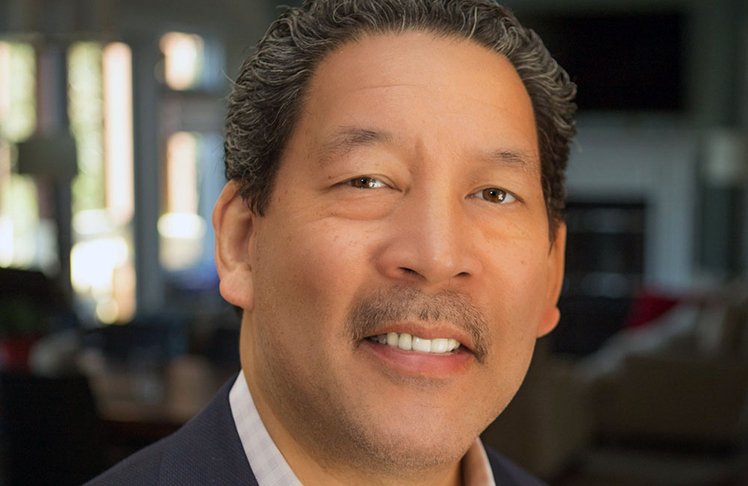
Bruce Harrell
Introduction
Bruce Harrell, the mayor of Seattle, has recently come under scrutiny due to a series of controversial remarks concerning a prayer rally that was disrupted by activists advocating for transgender rights. This incident has not only sparked a debate within the community but has also raised questions about Harrell’s leadership and the broader implications of his comments on social justice issues. As a prominent figure, Harrell’s perspective on such matters carries weight, influencing public sentiment in a city known for its progressive values and activist engagement.
In light of this controversy, it becomes pertinent to delve deeper into Harrell’s background, particularly focusing on his past legal entanglements, which have resurfaced in the public discourse. As a former member of the Seattle City Council and an attorney by profession, Harrell has a multifaceted history that reveals much about his journey to becoming the city’s mayor. The complexities of his past, including legal issues, do not merely offer insights into his character but may also frame his current response to the growing pressures from various activist groups.
This examination of Harrell’s past legal challenges, juxtaposed with his comments about the recent rally and his role as the mayor, allows for an informed discussion on the balance between personal beliefs and public duty. Furthermore, understanding how these elements intertwine can provide a clearer picture of the challenges that arise when leading a city marked by its commitment to inclusivity and justice. The implications of Harrell’s statements, his history, and the ongoing discourse surrounding these events merit careful exploration, setting the stage for a nuanced understanding of Seattle’s governance under his administration.
The Prayer Rally Incident
In the heart of Seattle, a prayer rally organized by a group of local Christians sought to foster unity and support for their community. The event aimed to create a positive environment where individuals could come together to share their faith, pray for the city, and address various social issues affecting the region. With a focus on building bridges among different communities, the organizers invited citizens to join them in a peaceful demonstration intended to highlight the importance of religious expression in public life.
However, the prayer rally was met with significant disruption from trans activists who opposed the event, voicing concerns over the messages that they perceived as exclusionary towards the LGBTQ+ community. Activists argued that certain elements within the prayer rally perpetuated harmful narratives regarding gender identity and sexual orientation. They raised their voices to assert that the event was not merely a religious gathering but a platform that could inadvertently promote discrimination and marginalization against already vulnerable communities.
Footage of the rally illustrated a tense standoff between the two groups, as chants and counter-chants echoed throughout the area. The response from Bruce Harrell, the mayor of Seattle, was closely scrutinized amidst this backdrop of unrest. Harrell called for a measured approach, emphasizing the importance of free speech for all individuals, regardless of their beliefs. His administration encouraged dialogue between conflicting sides, advocating for a peaceful resolution that would respect both religious freedoms and the rights of marginalized communities. This incident became a notable moment in Harrell’s tenure, showcasing the intricate balance he sought to maintain in a city characterized by diversity and sometimes polarizing opinions.
Harrell’s Comments and Reactions
In the wake of the disruption at a local prayer rally, Seattle Mayor Bruce Harrell made headlines with his pointed reactions towards the Christian participants involved. Harrell emphasized the importance of respect during public gatherings, criticizing those who disrupted the event, regardless of their beliefs. His comments highlighted his commitment to inclusivity and the need for civil discourse among differing viewpoints. The mayor stated, “We must be able to share our beliefs without imposing them on others,” underscoring a narrative centered on mutual respect and understanding.
The response to Mayor Harrell’s remarks has been a mixed bag, demonstrating a significant divide within the community. Supporters praised his approach, arguing that it reflects a modern interpretation of civic engagement in a diverse city like Seattle. Many community groups, particularly those advocating for religious tolerance and interfaith dialogue, expressed their approval. They believe Harrell’s comments are necessary for fostering a more harmonious relationship among different faiths and ideologies in a city characterized by its progressive values.
Conversely, backlash emerged from conservative factions who felt that Harrell was unfairly targeting the Christian community. Critics argue that his comments undermine the right to free expression and religious freedom, suggesting that his stance represents a broader trend of intolerance towards traditional values. Public forums and social media platforms saw polarized debates, with some calling for a reconsideration of how civic leaders handle religious diversity in public spaces. This situation has fostered intense discussions about the role of elected officials in navigating faith-related issues, illustrating the complexities inherent in maintaining order and respect in a pluralistic society.
Overall, the reactions to Mayor Harrell’s comments on the disruption at the prayer rally provide valuable insight into the broader dynamics of Seattle’s community relations, showcasing both the hopes for unity and the challenges posed by differing beliefs.
Background on Bruce Harrell
Bruce Harrell, a prominent figure in Seattle politics, has cultivated a reputation as a progressive leader committed to addressing the city’s most pressing issues. Born and raised in Seattle, Harrell’s early experiences shaped his understanding of social justice and community needs. He began his career as an attorney after earning his law degree from the University of Washington, where he focused on civil rights and social equity. His legal background provided a strong foundation for his future roles in public service.
Harrell first entered the political arena in 2007 as a member of the Seattle City Council, representing the 2nd District. Over his tenure on the council, he championed various progressive initiatives, particularly in the realms of public safety, housing, and education. His advocacy for affordable housing is particularly notable, as he pushed for policies that address homelessness and the housing crisis that has affected many residents in the region.
A significant aspect of Harrell’s career has been his focus on community engagement. He has frequently emphasized the importance of listening to constituents, seeking their input, and integrating their feedback into decision-making processes. This approach aligns with his vision for Seattle as an inclusive city that prioritizes diverse voices and supports marginalized communities.
In 2021, Bruce Harrell was elected as Seattle’s mayor, a milestone in his political journey. His administration has been marked by efforts to tackle issues such as public safety reform, climate change, and economic recovery in the post-pandemic landscape. Harrell’s governance reflects a commitment to progressive values, aiming to foster a resilient and equitable Seattle, while maintaining a focus on practical solutions to the challenges facing the city. His rise to the mayoral position underlines his dedication to serving the people and addressing the complex dynamics of urban life.
Uncovering Harrell’s Legal Troubles
Bruce Harrell, the current mayor of Seattle, has been a figure of controversy, especially regarding issues surrounding his past. Recent developments have brought to light an arrest record dating back to 1996, raising questions about the implications of his legal history on his political career. The arrest in question is notable for its severity, involving charges of aggravated assault and illegal possession of a weapon. This incident reportedly stemmed from a confrontation over a parking space, a seemingly trivial situation that escalated into a serious legal matter.
Eyewitness accounts and court documents suggest that during this altercation, Harrell became involved in a physical fight that resulted in his arrest. Law enforcement officials discovered a handgun inside his vehicle, which contributed to the charge of carrying a weapon without a valid permit. The facts surrounding this incident have surfaced at a time when scrutinizing public figures’ legacies is more prevalent than ever. In today’s political climate, where the concept of accountability is paramount, past actions can resonate profoundly with constituents and influence public perception.
It is essential to consider the context of Harrell’s actions within the societal dynamics of the time and his subsequent growth as an individual. While this incident may weigh heavily on his record, it forms only a part of his broader narrative. Urban leaders are often subjected to rigorous scrutiny, particularly those who espouse progressive ideals. As Harrell continues to navigate the complexities of his role in Seattle’s government, this resurfaced information serves as a reminder that past indiscretions can linger and affect current leadership landscapes.
The Charges and Legal Outcomes
Bruce Harrell, the current mayor of Seattle, has faced a controversial past regarding his legal issues, which include serious allegations that have garnered significant attention. Among the charges brought against him are aggravated assault, carrying a weapon, and interference with official acts. Each of these charges carries potential for considerable legal implications, making them a focal point in discussions about his past and present political career.
The charge of aggravated assault is particularly severe, typically considered a felony that can lead to substantial penalties. In many jurisdictions, this charge is associated with an intentional act of causing serious bodily injury or the intention to inflict such harm upon another individual. In Harrell’s case, the specific circumstances surrounding the incident leading to this charge remain a matter of public scrutiny, reflecting the ongoing tensions within urban governance.
Carrying a weapon, another grave accusation, speaks to concerns around public safety and the responsibilities of elected officials. When individuals in positions of leadership are charged with weapon-related offenses, it profoundly impacts public perception and raises questions about their judgment and civic accountability. Linked to this is the charge of interference with official acts, which suggests an attempt to undermine law enforcement activities—an aspect that directly conflicts with the principles of transparency and legality that public officials are expected to uphold.
As a result of these legal challenges, Harrell faced potential consequences that included the possibility of up to two years in jail. The severity of the allegations underscores the importance of accountability in public office, especially for a figure in a political climate that prioritizes social responsibility and ethical conduct. The legal outcomes related to these charges may shape his future as an elected official and impact his leadership style as he continues his tenure as Seattle’s mayor.
Public Image and Hypocrisy Claims
Bruce Harrell, the current mayor of Seattle, has cultivated a public image that emphasizes inclusivity, tolerance, and support for free speech. However, this carefully crafted persona has undergone scrutiny due to his past legal issues and the perceived hypocrisy that arises from his current statements and actions. Critics argue that his past arrests and subsequent critiques of others’ beliefs and behaviors stand in stark contrast to his proclaimed dedication to upholding freedom of expression.
Throughout Harrell’s tenure, he has made pointed remarks about the importance of accommodating diverse viewpoints, especially in a city as progressive as Seattle. However, his critics highlight a certain tension in his approach, suggesting that his personal history complicates his position. Critics have noted instances where Harrell’s past actions, including his run-ins with the law, seem to conflict with his current rhetoric about supporting free speech and allowing various forms of religious gatherings. This discrepancy raises questions about authenticity and credibility in his public statements.
The dichotomy between Harrell’s past and present has sparked debates in both local media and among constituents. The accusations of hypocrisy resonate particularly among those who feel that personal experience should inform one’s policies and philosophies as a leader. Furthermore, the mayor’s statements during religious gatherings and public discussions have often been juxtaposed against his more controversial legal history, prompting individuals to scrutinize the consistency of his views on societal issues.
As Seattle’s mayor navigates these complexities, the ongoing discussions surrounding his public image and the accusations of hypocrisy serve to highlight the challenges faced by political figures with troubled pasts. Their journeys toward leadership often bring forward questions of integrity and the capacity to lead with authenticity, integral traits for public figures in a diverse and dynamic city such as Seattle.
Political Implications of the Controversy
The controversy surrounding Bruce Harrell’s past, specifically his arrest record, carries significant political implications that merit thorough examination. In an increasingly polarized political landscape, Harrell’s actions can influence public perception, potentially affecting his support among constituents and his prospects in future elections.
Within the current political climate, voters are more inclined to scrutinize their leaders’ pasts, seeking transparency and accountability. As a public figure who has positioned himself as a progressive leader, Harrell’s arrest record introduces a layer of complexity to his narrative. Critics may leverage this information to question his credibility, particularly among constituents who prioritize integrity in their elected officials. In a city like Seattle, known for its progressive values, any deviation from expected behavior can resonate negatively with voters, especially within key demographic segments that are crucial for electoral success.
Further complicating matters are Harrell’s recent decisions in office, which may also be perceived through the lens of his past. His aggressive pursuit of criminal justice reform and community policing may appear disingenuous to those who view his arrest history as contradictory to his current policy initiatives. This perception could alienate potential supporters who advocate for reform based on genuine experiences rather than past mistakes. Conversely, there exists an opportunity for Harrell to frame his past as a learning experience, demonstrating personal growth and a commitment to the community’s betterment. This narrative could resonate positively with voters who appreciate authenticity and resilience in political figures.
Ultimately, the interplay between Harrell’s controversial past and his political future will likely shape campaign strategies and voter engagement methods moving forward. As he navigates this complex landscape, the effectiveness of his message and its alignment with constituent values will be pivotal in determining his political trajectory and influence in upcoming elections.
Conclusion
In examining the intricate background of Bruce Harrell, Seattle’s mayor, it is evident that his past plays a significant role in shaping his current political narrative. Throughout this discussion, we have traversed various aspects of his character and political stance, highlighting the complexities inherent to his leadership. Harrell’s arrest record, which has stirred conversations in the community, serves not only as a reflection of his personal experiences but also as a lens through which we can evaluate accountability in public office.
The conflicting opinions about Harrell illustrate the broader themes of personal history affecting political careers. As society demands greater transparency and integrity from its leaders, scrutiny of past behaviors becomes ever more pertinent. Harrell’s journey is emblematic of the challenges faced by public figures today, where their previous actions can often overshadow their professional contributions. This notion raises questions about redemption and the capacity for change, as well as the public’s willingness to forgive and accept growth.
Moreover, the intersectionality between Harrell’s past experiences and his current role accentuates the importance of understanding individuals in a holistic manner. Political leadership necessitates not only the ability to enact policies that serve the community but also the responsibility to acknowledge one’s past and its influence on both personal and public perception. In this era, where public personas are increasingly scrutinized, navigating this landscape requires a delicate balance of authenticity and accountability.
Ultimately, Bruce Harrell’s narrative is a complex tapestry woven with threads of personal and political implications, resonating with contemporary discussions around leadership and character. The ongoing conversation about his past continues to be pivotal in understanding how personal histories inform the public roles leaders occupy in today’s society.

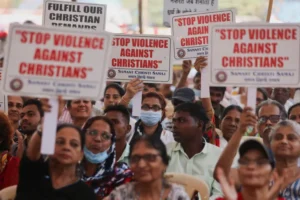
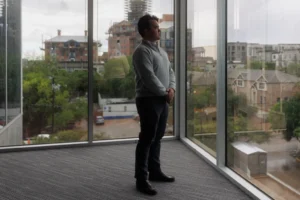



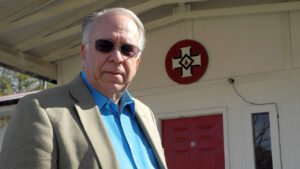
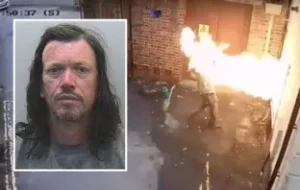
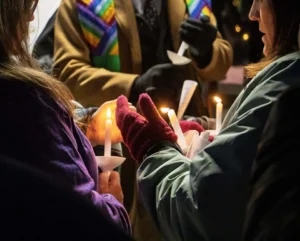

Leave a Reply
You must be logged in to post a comment.